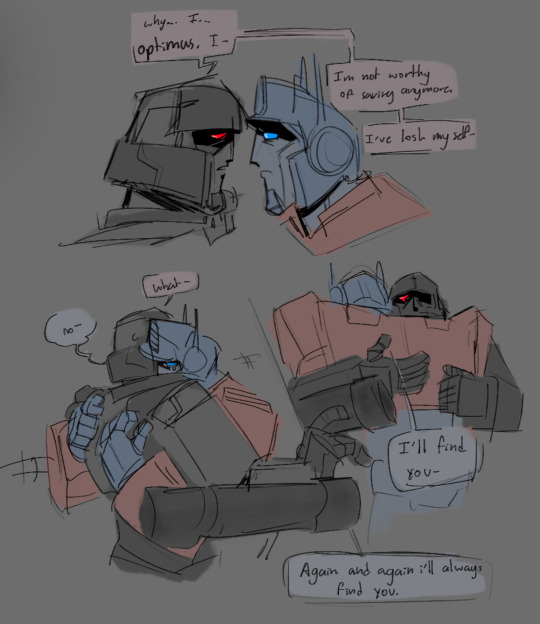Personal blogI like Soundwave a lotDon’t follow me for art please. I have separate blogs for that
Don't wanna be here? Send us removal request.
Text
He lost focus and wanted a consensual workplace relationship

5K notes
·
View notes
Text







Here my little Part 2 of the Toy Repair AU!
20K notes
·
View notes
Text

Girl dad Silco is a source of endless entertainment for me
Extra doodles:

Someone save Sevika, she is in hell
44K notes
·
View notes
Text

Inexperienced Megatron is the best topic.
2K notes
·
View notes
Text




transformers one? more like transformers WOKE with megatrans and optimus pronouns 🤣🤣🤣🤣🤣🤣🤣
5K notes
·
View notes
Text

Shout out to the only straight couple ever
11K notes
·
View notes
Text

Does anyone fw Circe and Scylla yuri
270 notes
·
View notes
Text

scylla before the transformation (entirely based on the book Circe btw)
7K notes
·
View notes
Text
Okay, let's finally talk about EPIC's Apollo
I feel very compelled to say, first of all, that I do not dislike Epic. In fact, I am very fond of Epic and have been following its production and status very eagerly! I attend all the launch streams, I watch all of Herrans' update videos; I am, at the end of the day, a fan and I want it to be known that my words are spoken out of love and passion as much as they are spoken from a place of critique.
So really, what my problem with Epic's Apollo?
In the briefest possible terms; the choice to have Apollo be defined by his musical aspect in God Games is thematically strange. And not in the 'oh well in the Odyssey, Apollo was important to Odysseus and his family so it's weird that that wasn't kept in Epic' strange, strange in the sense that Odysseus' character arc since My Goodbye has been getting more and more obviously Apollonian and so it is positively bizarre that when we get to meet Apollo, the god seems entirely disinterested in him and his affairs. So much so that he is not even defined by any station that would indicate that he has been watching over and protecting Odysseus and his family.
What do I mean by 'Odysseus has been following an Apollonian arc'? I'm so glad you asked!
Remember Them is the last song in which Odysseus explicitly uses his sword until Mutiny where he must use it to defend himself against Eurylochus' blade. He uses it to help enact the plan to conquer Polyphemus and, due to Polites dying in that battle, Polites who wished for Odysseus to put the blade down entirely and embrace a post-war life, Odysseus also retires his sword. This is an action that symbolically separates him from Athena - and the image of Odysseus as a traditional warrior set for him in Horse and Infant - as much as My Goodbye physically separates him from the goddess and her war-ways - from this point onwards, Odysseus will no longer be leaning on Athena's wisdom or methods to solve his problems. Likewise, he will no longer be able to rely on her protection.
Odysseus thusly solves most of his upcoming problems through diplomacy and avoidance. He approaches Aeolus - a strange and ambiguous god (both in gender and in motivation) and appeals to them for help. Circe too, he approaches not with wishes to conquer or for revenge, but for the safe returning of his men and an alternate way forward. In all of these scenarios, there is some Apollonian element which is subtly interweaved alongside the influence of other gods; it is with a bow and arrows that Polyphemus' sheep is slain (and thus it is this Apollonian element which is at the root of Odysseus' spat with Poseidon), it is a vision of Penelope that warns Odysseus that his men are about to open Aeolus' wind-bag, Circe's peace offering to Odysseus is to refer him to a prophet of Apollo who has since died.
In this way, Apollo is walking alongside Odysseus for all of his journey after Athena departs - even in the Underworld, he is guiding him. It is Tiresias' proclamation that is the last straw for Odysseus, it is by the power of a mouthpiece of Apollo that Odysseus decides to embrace his ruthlessness. It is with the bow and arrow that Odysseus subdues the siren who sought to trick him, likewise, Odysseus does not attempt to undermine or escape the fate of paying Scylla's passage price - he knows of the doom about to befall the six men and quite unlike the rest of the journey until this point, he does not fight against it. This all comes to a head on Thrinacia where it is a blade which sacrifices the sun god's cow and brings destruction upon the crew once more.
My point with all of this is that when I heard the teasers for God Games years ago, it made perfect sense to me that Apollo would be Round One - he is not Odysseus' adversary and has no reason to oppose Athena's wish to free him. From other teasers about what will happen in the climax of Epic, Apollo will still be walking alongside Odysseus - it is Apollo's bow that Penelope will give the suitors to string. Likewise, it is Apollo's bow that will prove Odysseus' legitimacy and identity. That bow will be the power by which Odysseus hunts his adversaries and cleans out his palace - it is Apollo who is the avatar of Odysseus' ruthlessness, not Athena.
So tell me, truly, what was the point of having Apollo raise a non-argument in God Games? Why have him appear unconcerned, aloof and slightly oblivious? Why have him appear in his capacity as the Lord of Music at all?? And if the intention was never to make Apollo an active player in Odysseus' life like he was in the Odyssey, why keep Odysseus as a primary archer?
The answer of course is that Apollo is inextricable from the fabric of the Odyssey - his influence and favour exudes from Odysseus just as much as Athena's. In Athena's ten year sulk, it would have been Apollo who kept Telemachus and Penelope safe. It would have been Apollo protecting Odysseus from Poseidon's gaze as he travelled the seas (according to the Odyssey anyway)
Forgive me for not being excited about something that I thought was being purposefully set up. I was extremely ecstatic about all of the little Apollonian details that litter the sagas because I know where this story ends up (loosely) but all God Games did was reveal that maybe those Apollonian details were not intentional at all, but merely the ghost of the Apollo who persistently haunts those he favours, even if he cannot explicitly come to their aide in an adaptation.
182 notes
·
View notes
Text
Even in Miller’s Circe there was a moment when Circe wondered if the reason Scylla was constantly nagging her was because she was in love with her. They played it off as hatred but idk Scylla was a little too into getting Circe’s attention to piss her off. She wanted her so bad but that was unacceptable as she was close with her siblings who hated Circe so she was trying to get Circe’s attention the only way she could without being shunned
Listen. I love Madeline Miller’s Circe. Period.
On a totally unrelated note: I am fully endorsing a Circe x Scylla ship for EPIC The Musical.
79 notes
·
View notes












